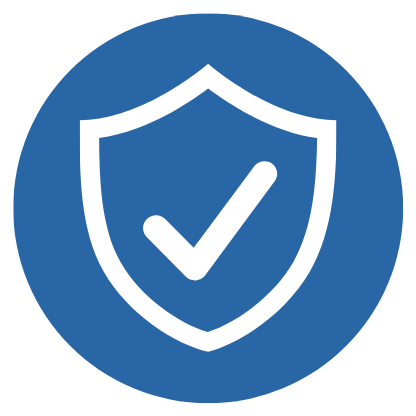A Peer Coaching Demonstration | Dawn Chanland
Reference: Dawn Chanland. (2017, June 27). A Peer Coaching Demonstration [Video]. YouTube.
We Make Your Education Count

Get the Credit You Deserve and Become the Most Attractive Job Candidate by Earning and Posting A+ Badges to Your Linkedin Profile.
Sign Up to Get Started at Accredicity
|
Discover how to build organizational trust and credibility with this must-watch peer coaching demonstration. In this Peer Coaching Demonstration video by Dawn Chanland, John seeks advice from his peer coach on his current situation at a new job. John is part of a small internal consulting department at a large insurance company, where he has been struggling with resistance to his ideas and planned. The head of the department has left and John is the only one left in the department. John is looking for fresh perspective on how to handle the situation and how to make the organization take his department seriously. He realizes he needs to work on his personal credibility with the organizational critical stakeholders, to ensure the entire team is not affected by the horns effect. Learning OutlineMain Points to Learn from Video: Instructional ContentPeer coaching can be a powerful tool to help individuals in their professional and personal development. This demonstration provides an overview of how a peer coaching session can help a person in their current situation. The demonstration highlights the importance of developing trust between coaches and clients, and emphasizes the need to focus on the client’s objectives in order to help them create an effective plan to reach their goals. In this demonstration, the coach helps the client to identify three main issues: the team’s headcount, the team’s morale, and the way that the organization views their function. The coach then encourages the client to focus on the issue that is most important to them. In this case, the client decides to focus on the way the organization views their function because it is the issue that keeps them up at night. The client then outlines what it would mean for them to be taken seriously by the organization, which is to be viewed as a valuable and trusted advisor who can help with the achievement of organizational goals. They also realize that their personal credibility can have an impact on the credibility of the entire team. In conclusion, this demonstration provides insight into the power of peer coaching and the importance of developing trust between coaches and clients. It also highlights the need to focus on the client’s objectives in order to help them create an effective plan to reach their goals. Finally, it emphasizes that the client’s personal credibility can have an impact on the credibility of the entire team. Leadership
|

This video shows a demonstration of a peer coaching session. In the video, John is talking to his coach about a problem he is having at his new job. He is frustrated because he doesn't feel like his team is taken seriously by the rest of the organization. His coach helps him realize that he should focus on building his own credibility with the important people in the organization, so that his team can be seen as a valuable part of the company. The coach helps John understand the importance of trust in the workplace and how trusting relationships can help John and his team succeed. Video Quotes1. "I believe that it's really important that we work on that because if not the horns effect that we learned about during our organizational behavior course that the MBA could haunt the entire team hatred." - Dawn Chandland 2. "I suppose it would mean that people view me and my function as a valuable trusted advisor that can help with the achievement of organizational goals by by analyzing situations by setting a course of action and by being involved in the process of implementation." - Dawn Chandland 3. "It sounds like you realize that you need to work on the way the organization perceive you." - John (Peer Coach) Related Quotes"It's really important to take ownership of the process." (Dena, the coach) Competencies1. Coaching Learning Outcomes1. Analyze: Recognize the importance of dispositional trust in the organizational context and its impact on the team. 2. Apply: Use the concept of the “horns effect” to explain the potential consequences of a lack of trust in the team. 3. Understand: Identify the differences between internal and external consultants and their expected roles in the implementation process. 4. Evaluate: Assess the current situation in the team and the need for improving personal credibility with organizational critical stakeholders. 5. Create: Create a mission statement that defines the role of the internal consulting department. 6. Remember: Recall topics discussed in the MBA organizational behavior class to identify solutions to the current situation. Sample Answers1. From the video and its transcript, I learned that it is important to build credibility with organizational critical stakeholders. This can be done by being invited to important strategy meetings and having conversations with function leaders or marketing leaders. 2. I also learned that the impact of not being taken seriously can have a "horns effect" on the team. This is why it is important to work on building personal credibility. 3. Finally, I learned that crafting a mission statement for the department can help to define its purpose and contribute to its success. This can help to ensure that the department is viewed as a valuable and trusted advisor. Dawn ChanlandDawn Chanland is a professional coach and the founder of The Coaching & Training Connection, LLC. She has been coaching, training, and facilitating personal growth since 2007. She is a Certified Professional Co-Active Coach (CPCC) and a Professional Certified Coach (PCC) through the International Coach Federation (ICF). She is also a Certified Life Mastery Consultant and a Certified Master Practitioner of NLP. Dawn has been facilitating peer coaching for over 10 years. She is also an adjunct faculty member for the University of Maryland School of Social Work and an adjunct faculty member for the National Catholic School of Social Service. Her expertise in Peer Coaching Demonstration is rooted in her extensive experience and knowledge in the field of coaching. Dawn Chanland is associated with The Coaching & Training Connection, LLC, a professional coaching and training business that has been in operation since 2007. The Coaching & Training Connection, LLC. Learning DesignThe three competencies of Coaching, Team Building, and Integrity and Trust are all essential skills for effective leadership. Coaching is an important skill for leaders to possess, as it helps them to develop their team members and bring out their best qualities and performance. Team Building is another key component of successful leadership, as it helps to create a sense of unity and collaboration amongst team members. Lastly, Integrity and Trust are critical for leaders to have, as it allows them to inspire trust and confidence in their team members and create a positive work environment. In order for students to develop these competencies, it is important to utilize the right framework. One such framework is the Experiential Learning Cycle, which can be used to help learners to engage with the material and develop their understanding of the competencies. The cycle involves four stages: Concrete Experience, Reflective Observation, Abstract Conceptualization, and Active Experimentation. Through this cycle, learners will be able to gain hands on experience and apply the concepts they have learned in order to develop the three competencies. Another pedagogy that can be employed is the case study method. This method involves looking at real-world scenarios in order to understand the application of the competencies. Through this method, students will be able to gain a better understanding of the competencies and be better prepared for leadership roles. Overall, Coaching, Team Building, and Integrity and Trust are essential competencies for successful leadership. Through the utilization of the Experiential Learning Cycle and the Case Study Method, students will be able to gain the knowledge and experience needed to develop these competencies. AssessmentMultiple-Choice Exam Question: Answer: C. Increase his personal credibility with organizational critical stakeholders QuestionsQuestions: KeywordsDispositional Trust, Internal Consulting, External Consultancy, McKinsey Type People, Organizational Behavior Course, Strategic Consultancy Firm, Organizational Goals, Business Processes, Organizational Stakeholders, Parallel Work Facts1. The EMBA coaching sessions taught John to look for solutions independently. Trends1. Create a detailed plan that outlines steps to improve the team's perceived credibility with organizational stakeholders. Set goals and milestones that can be measured to assess progress. SourceThis learning instructional guidance was formulated using the GPT-3 language model created by OpenAI. ShareWant to boost your workplace credibility? #Trust is key! Here's how to build it confidently: https://www.youtube.com/watch?v=XEgUY77GFYc 👍 #Success #Leadership #Growth @Accredicity |







 114 Creds - Leadership
114 Creds - Leadership



